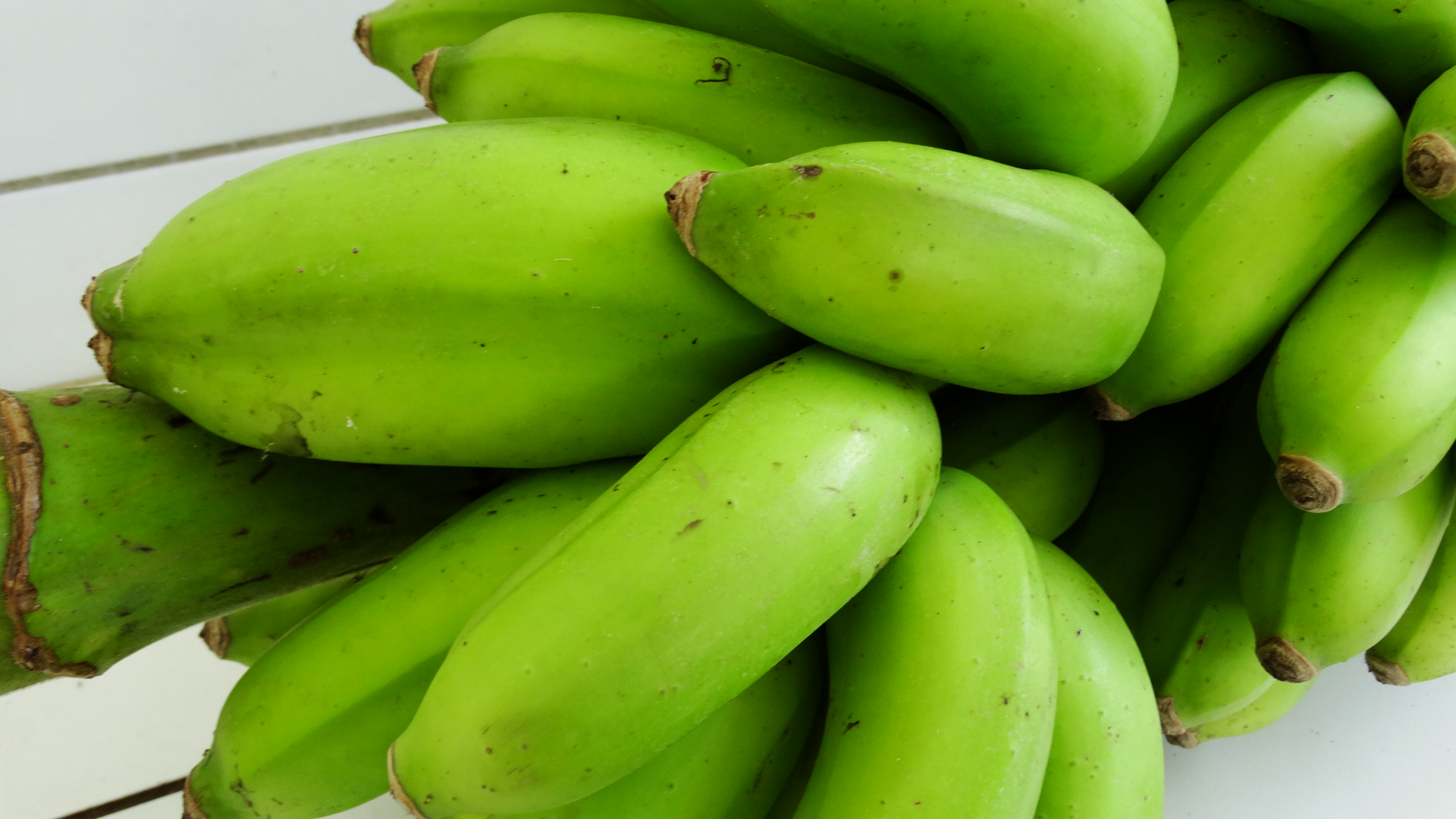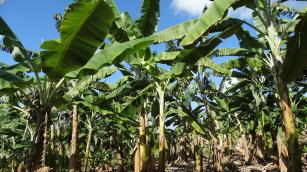First bananas from Embrapa cultivars are harvested in Africa
First bananas from Embrapa cultivars are harvested in Africa
The second week of March saw the harvest of the first fruits of the 13 banana cultivars developed and/or protected by Embrapa Cassava and Tropical Fruit (Cruz das Almas, BA, Brazil), a unit of the Brazilian Agricultural Research Corporation - Embrapa, under the Ministry of Agriculture, Livestock and Food Supply, and that are being tested in Tanzania, Uganda and Nigeria since late 2014.
The harvest is part of a project approved in 2013 through the Africa-Brazil Agricultural Innovation Marketplace, which aims at fostering development in African countries through Embrapa's technical-scientific support and collaborating to food security in the African continent.
“According to reports of the researchers responsible for the analyses in Uganda, in this first cycle Embrapa's cultivars presented good agronomic development and preliminary sensorial acceptance, especially BRS Princesa, BRS Platinum, BRS Vitória, BRS Japira, and BRS Pacovan Ken. We should also stress their resistance to diseases, especially black sigatoka and Fusarium wilt, which are present in high intensity in the area of the experiments”, said the leader of Embrapa's Banana and Plantain Genetic Improvement Program, Edson Perito Amorim. Black sigatoka is the most serious problem of world banana crops and Panama disease (or fusarium wilt) is endemic in all banana cropping regions of the world. Besides being resistant, Brazilian varieties are rustic, which facilitates cultivation in areas where the technology use is still incipient, as in most African countries.
Assessment
Validation is performed by the International Institute of Tropical Agriculture (IITA) and by the National Agricultural Research Organisation (Naro), whose technicians also informed Embrapa that local cultivars, which are susceptible to diseases, succumbed and did not bear fruit - especially the Sukali Ndizi cultivar, an apple banana type widely consumed in the region of the African Great Lakes, where Uganda is located.
This is Embrapa's first coordinated initiative to expand the adoption of its banana cultivars overseas. “These are preliminary results. An international recommendation - which would be an unprecedented feat - requires at least three production cycles and a more detailed analysis of commercial acceptance, as already planned with the Naro and the IITA teams. We are working with three completely different environments, including in terms of consumer preference, and it is likely that the recommendations will be made per country”, Amorim explains.
As a counterpart action, IITA sent black sigatoka-resistant plantain cultivars developed by their breeding program to Brazil, and they are in the process of in vitro multiplication at Embrapa Cassava and Tropical Fruit's Tissue Culture Laboratory. The perspective is to set up, at the beginning of 2018, the first Technological Reference Units (URTs) in the main plantain production regions in Brazil. “Since black sigatoka it is the main disease that affects the crop in the country, especially in the Brazilian North and Middwest, and considering the identification, in 2015, of the first foci of the pathogen in the states of Bahia and Espírito Santo [major plantain producer], the resistant genotypes have potential to mitigate the effect of the disease in the affected regions”, hopes the researcher.
Translation: Mariana de Lima Medeiros
Léa Cunha (DRT-BA 1633)
Embrapa Cassava and Tropical Fruit
mandioca-e-fruticultura.imprensa@embrapa.br
Phone number: +55 75 3312-8076
Further information on the topic
Citizen Attention Service (SAC)
www.embrapa.br/contact-us/sac/


